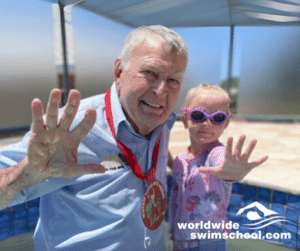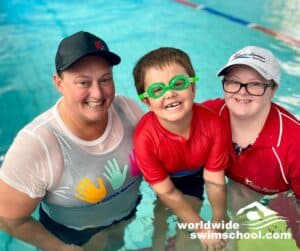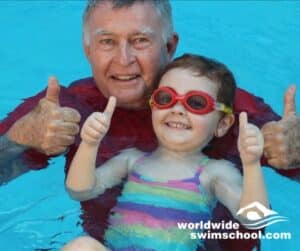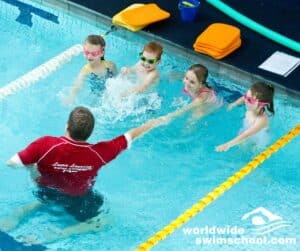Through much research such as online articles, journals, textbooks and learning how teach an adult to swim myself, the outcome is unanimous. Most young adult swimmers have a specific stroke or skill they want to learn. The young adult is aged between 18-30 years and is usually highly motivated in learning how to swim. The first time a swim teacher meets their adult student some important questions to ask are:
- Why do you want to learn to swim?
- What do you want to learn?
This helps the teacher understand the motivation behind the young adult wanting to learn to swim.
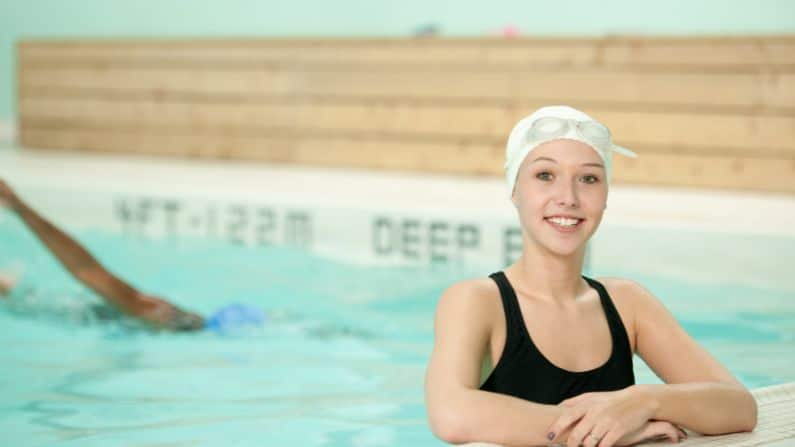
Why Adults Want to Learn
Some reasons I have come across are:
- Want to be able to swim with their children
- Medical reasons
- Need to be able to swim for a job they are applying for
- Fitness and social interaction with peers and the community
Keep your Goals in Mind
As a teacher, it’s imperative to keep these goals in mind and explain the learning pathway on how to achieve this realistically. It is a common occurrence for this age group to struggle and become frustrated when they don’t master a skill or stroke straight away. Teachers need to remind the adult learner to relax, not to over analyse and be patient within themselves.
While teaching the adult swimmer you may come across some other barriers that affect their learning such as;
- Language
- Flexibility
- Fear – not being able to breathe, failing, injury, environment, feeling out of control
By communicating with your adult swimmer and learning about their goals, past experiences and feelings about water, you will be able to design a lesson plan together that will be achievable. In turn, your swimmer will increase their motivation to learn. Discovering how to teach an adult to swim can be a rewarding experience for teachers.

Adults Learn to Swim of their Own Accord
Unlike many children, adults attend lessons because THEY want to, not because someone else (parents/guardians, etc.) want them too. This makes them more dedicated to learning new skills, keeps them motivated and excited throughout the journey and willing to celebrate successes along the way. Adult swimmers also have the thought processes to set goals and work towards them slowly but surely. Teachers will receive great satisfaction from the work and results that their adult swimmers achieve throughout their learn to swim journey.
How do you keep your clients returning? Please share in the comments below.
Join our community to read our latest articles, get latest offers.
Watch our adult learn to swim videos to build your skills.

